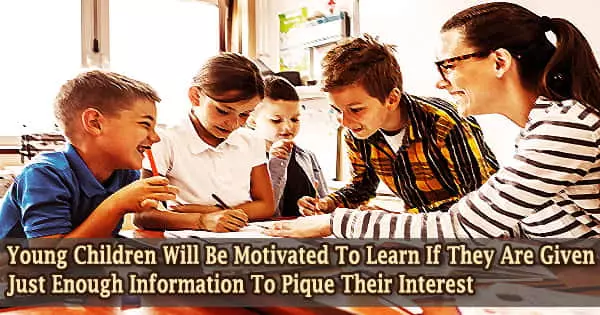According to a study conducted by Rutgers University-New Brunswick, preschool toddlers are aware of the gap between what they know and what they still need to learn. The majority of good students aren’t born with the ability to learn. Individual personality has a huge role in a child’s motivation to study and overall attitude toward schooling and education, although most good learners have to learn to be good learners at some time.
More significantly, any student with the fundamental ability and the proper desire may become an excellent learner. Preschool children are more likely to want to learn more about something if they know just enough about it to find it fascinating, but not too much that it becomes uninteresting, according to a study published in the journal Psychological Science.
This “optimal” quantity of current information, according to researchers, produces the proper balance of ambiguity and curiosity in youngsters, motivating them to study more.
“There is an infinite amount of information in the real world,” said lead author Jenny Wang, an assistant professor of cognitive psychology at Rutgers. “Yet despite having to learn so much in such a short amount of time, young children seem to learn happily and effectively. We wanted to understand what drives their curiosity.”
The research looked at how a child’s degree of knowledge affects what information they find fascinating. The findings reveal that youngsters aren’t just drawn to the material because it’s new to them.
There is an infinite amount of information in the real world. Yet despite having to learn so much in such a short amount of time, young children seem to learn happily and effectively.
Jenny Wang
Limiting learning to the classroom is one of the worst errors instructors and parents can make when it comes to producing students and children who are good learners. Children are naturally interested, according to Wang, but the challenge is figuring out how to harness that curiosity.
“Ultimately, findings like this will help parents and educators better support children when they actively explore and learn about the world,” Wang said.
Wang and her co-authors devised in-person and online storybooks to assess how much 3- to 5-year-old preschool children know about several “knowledge domains” in a series of trials.
The investigation also tested their capacity to grasp and comprehend a specific issue, such as contagious disease, and examined how children’s present knowledge level predicts their desire to learn more about it, such as if someone will become sick after playing with a sneezing buddy.
“Intuitively, curiosity seems to belong to those who know the most, like scientists, and those who know the least, like babies,” said Wang, who directs the Rutgers Cognition and Learning Center (CALC).
“But what we found here is quite surprising: it was children in the middle who showed the most interest in learning more about contagion, compared to children who knew too little or too much.”





